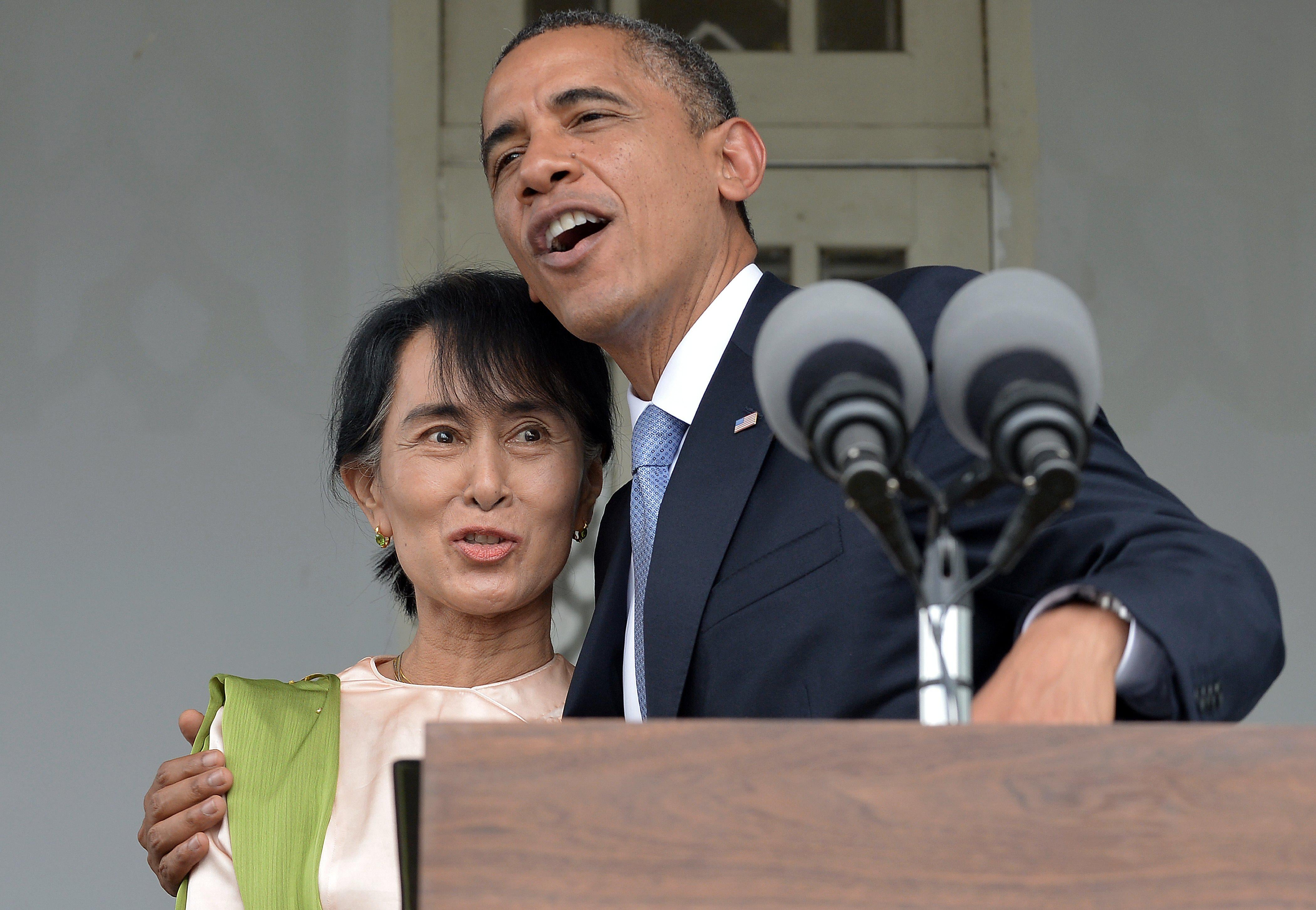It’s getting harder for the Obama administration to point to concrete foreign policy successes. (Not doing “stupid shit,” in the words of the president, may indeed be an accomplishment, but it’s hard to take credit for things you didn’t do.) And many of the potential successes it can point to—the ongoing Iran nuclear negotiations, the removal of Bashar al-Assad’s chemical weapons, the promising early days of the Russia “reset” before that took a very unfortunate turn—involved looking the other way on some pretty egregious human rights abuses. During this week’s summit in Beijing, the White House’s previous efforts to reach out to the Chinese public have, the New York Times reports, been abandoned in favor of a more leader-centric approach.
When it comes to democracy and rights-promotion success stories, the White House could until recently point to Myanmar, also known as Burma, where the president will arrive tomorrow. Obama’s last visit to the country, in 2012, was indeed a historic opening to a place that had spent years as a North Korea-like pariah. In exchange for some sanctions relief, Myanmar’s military leaders allowed landmark elections in 2012 in which longtime democracy leader Aung San Suu Kyi was elected to parliament. The government also agreed to review the status of a number of political prisoners and agreed to nuclear inspections.
In a speech at West Point last May, Obama touted the country’s progress, saying, “Thanks to the enormous courage of the people in that country, and because we took the diplomatic initiative, American leadership, we have seen political reforms opening a once closed society.” If Myanmar’s reforms succeed, he concluded, “We will have gained a new partner without having fired a shot.”
Things look a bit different now. Tens of thousands of Rohingya Muslims in the country’s west are being held in camps where a U.N. official recently described conditions as containing an “element of genocide,” and the country’s parliament is considering new restrictions on freedom of religion. Myanmar has fallen short on a number of the key reforms that were promised during Obama’s last visit. Despite promises to open up competition for the presidency, a parliamentary committee last June voted against changing a law that bars Aung San Suu Kyi from running.
And even she, the Nobel Prize laureate and world-famous activist whom Obama will once again meet with on his trip, has disappointed many of her international admirers with her silence on the plight of the Rohingya. “The lady” is, after all, a politician now, and one whose grasp on power is looking ever more tenuous.
Given that Washington is already pivoting to 2016 politics, Myanmar’s backsliding also doesn’t look great for Hillary Clinton, who, in 2011, was the first senior U.S. official to visit Myanmar in 50 years. The “one clear-cut triumph” of her tenure as secretary of state doesn’t look so clear-cut anymore.
Of course, the story isn’t over. Myanmar’s path to reform was inevitably going to be bumpy, and Obama will no doubt address its recent backsliding during his visit (as he’s being widely urged to do). And even if the process is a disappointment, that doesn’t mean it wasn’t worth trying.
But one of this White House’s signature foreign policy success stories—and one of the very few involving democracy or human rights—is looking pretty shaky at the moment.
